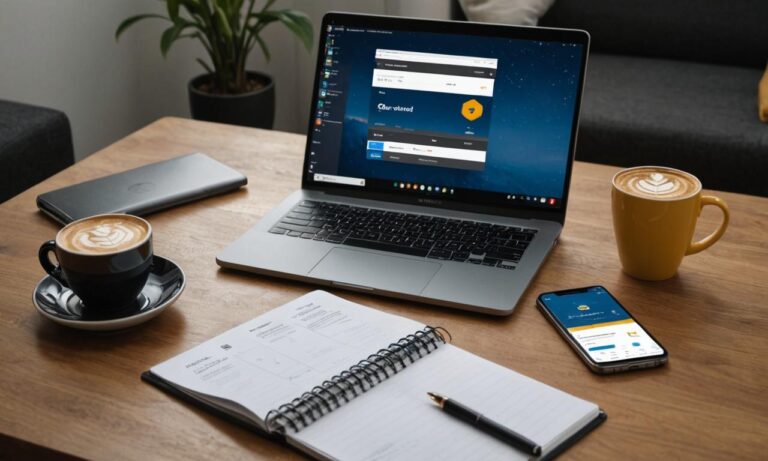Coinbase scams and phishing attacks are on the rise, targeting unsuspecting users and their valuable cryptocurrency. In this article, I’ll share my insights and experiences to help you stay vigilant, identify potential scams, and safeguard your funds.
As a long-time Coinbase user, I have encountered my fair share of suspicious emails, fake invoices, and phishing attempts. It’s crucial to stay informed and educated about these scams to protect your hard-earned crypto. Let me guide you through the common scams to watch out for and provide you with actionable tips to keep your Coinbase account secure.
In my experience, one of the most convincing scams I encountered was an email claiming to be from Coinbase, asking me to verify my account by clicking on a link. Thankfully, I took a moment to scrutinize the email and realized it was a phishing attempt. Always be cautious and verify the authenticity of any communication claiming to be from Coinbase.
Common Coinbase Scams to Watch Out For
Scammers are constantly evolving their tactics to trick Coinbase users. Some of the most prevalent scams include:
- Impersonation scams: Scammers posing as Coinbase support or representatives, often through fake emails or social media accounts.
- Airdrop phishing campaigns: Fraudulent offers of free cryptocurrency in exchange for providing your Coinbase account details.
- Unauthorized access scams: Attempts to gain access to your Coinbase account by tricking you into sharing your login credentials or 2FA codes.
- Fake invoice scams: Emails or messages claiming you owe money to Coinbase, often with a sense of urgency.
Be vigilant and approach any unsolicited communication with a critical eye. If something seems too good to be true or raises suspicion, it probably is a scam.
Identifying and Reporting Coinbase Phishing Emails
Phishing emails are a common tactic used by scammers to steal your Coinbase login credentials and gain unauthorized access to your account. Here’s how you can identify and report these malicious emails:
- Check the sender’s email address carefully. Scammers often use similar-looking domain names to trick you.
- Look for poor grammar, spelling mistakes, and a sense of urgency in the email content.
- Hover over any links in the email (without clicking) to see if they lead to suspicious or unrecognized websites.
- Forward any suspicious emails to [email protected] to report them to Coinbase’s security team.
“Coinbase will never ask you to share your password, 2FA codes, or private keys via email,” warns cybersecurity expert Dr. Eliza Schwartz. “If you receive an email requesting this information, it’s a clear sign of a phishing attempt.”
Protecting Your Coinbase Account from Scammers
Taking proactive measures to secure your Coinbase account is essential to prevent unauthorized access and protect your funds. Consider the following tips:
- Enable two-factor authentication (2FA) on your Coinbase account for an extra layer of security.
- Use a strong, unique password and never share it with anyone.
- Avoid granting remote access to your device or sharing your screen with unknown individuals claiming to be Coinbase support.
- Regularly monitor your account activity and transaction history for any suspicious transactions.
| Do | Don’t |
|---|---|
| Enable 2FA | Share your password |
| Use a strong, unique password | Grant remote access to your device |
| Monitor your account activity | Click on suspicious links |
Tips for Staying Safe and Secure on Coinbase
In addition to the security measures mentioned above, here are some general tips to help you stay safe and secure on Coinbase:
- Stay vigilant and trust your instincts. If something seems suspicious, it probably is.
- Be cautious when interacting with unsolicited messages or offers related to Coinbase.
- Keep your software and security measures up to date to protect against evolving threats.
- Educate yourself about the latest scams and phishing techniques to stay one step ahead of scammers.
Remember, your crypto security is in your hands. By staying informed, vigilant, and proactive, you can significantly reduce the risk of falling victim to Coinbase scams and phishing attacks.
The Importance of Verifying Coinbase Communications
One of the most crucial aspects of avoiding Coinbase scams is to always verify the authenticity of any communication claiming to be from Coinbase. Follow these steps to ensure you’re interacting with legitimate Coinbase representatives:
- Check the official Coinbase website and support channels for any updates or notifications.
- Contact Coinbase directly using the official contact information provided on their website.
- Be cautious of unsolicited phone calls, emails, or messages claiming to be from Coinbase.
- Verify any links or URLs before clicking on them, ensuring they lead to the official Coinbase website.
By taking the time to verify the authenticity of communications, you can protect yourself from falling victim to sophisticated phishing attempts and scams.
Taking Action Against Coinbase Scams and Fraud
If you suspect you’ve encountered a Coinbase scam or have fallen victim to fraud, it’s essential to take immediate action:
- Report the suspicious activity to Coinbase using their official support channels, such as the Coinbase phone number: 1 (888) 908-7930 or email: [email protected].
- Change your Coinbase account password and any other accounts that may use the same password.
- Enable or reset your two-factor authentication (2FA) to prevent unauthorized access.
- Monitor your account activity closely and report any suspicious transactions to Coinbase.
By promptly reporting scams and taking the necessary steps to secure your account, you can minimize the potential damage and help prevent others from falling victim to similar scams.
As a Coinbase user, it’s our shared responsibility to combat scams and fraud. By staying informed, reporting suspicious activities, and implementing strong security measures, we can create a safer environment for everyone in the crypto community.
In conclusion, Coinbase scams and phishing attacks pose a significant threat to the security of your cryptocurrency. By staying vigilant, educating yourself about common scams, and taking proactive measures to protect your account, you can significantly reduce the risk of falling victim to these malicious activities. Remember, your crypto security starts with you. Stay informed, stay cautious, and always prioritize the safety of your funds.
See also:
- Beware of Fake McAfee Emails: Identifying and Avoiding Invoice Scams
- Beware of Norton Email Scams: Protect Your Money and Personal Information
- Beware the Meta Business Suite Message Scam: Don’t Fall for Fake Warning Messages
- Beware of Instacart Scams: Protecting Customers and Shoppers
- How to Spot and Avoid Apple Pay Scams: Protecting Your Money






